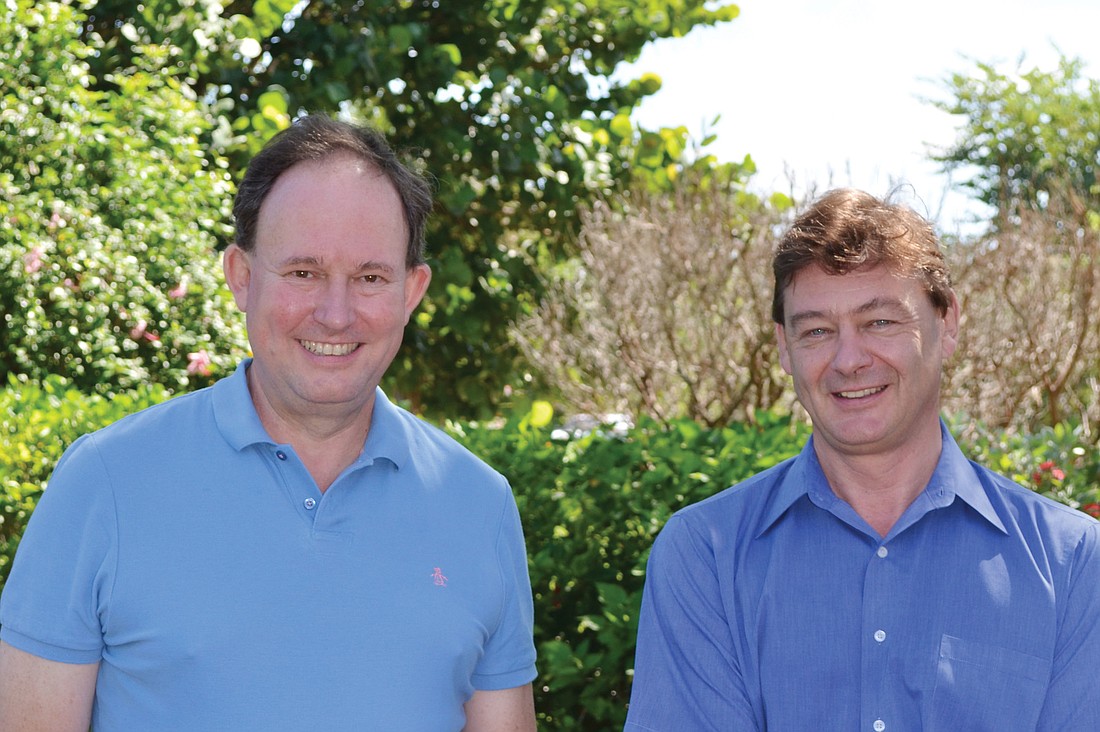- April 24, 2024
-
-
Loading

Loading

Distributed Antenna Systems (DAS), femtocells, 4G technology.
If it’s an alternative to a cellular tower, the town of Longboat Key has heard about it.
But Sept. 20, Town Manager Dave Bullock heard yet about another alternative.
Simon Platt, the son of Key resident and cellular tower opponent Ronald Platt, and Michael Tattersall, CEO and founder of Stratsoft LLC, met with Bullock to discuss a small-cell design concept that’s gaining traction in other small tourism towns that don’t want a tower to improve reception.
Platt, a forensic accountant, and Tattersall, whose company acts as a management consultant in the telecommunications industry, told the Longboat Observer their meeting was nothing more than an informational session and neither intends to be a part of a cellular alternative solution for the Key.
Both friends live and work in Carlyle, Mass., just outside of Boston, and Platt explained their reason for their September visit to the Key.
“We were chatting over a beer, and I was explaining to Michael the cellular tower issue my dad was dealing with on Longboat Key,” Platt said. “It turned out to be a very expensive beer.”
Tattersall agreed to modify travel plans to meet with Platt and Bullock Sept. 20, outlining what he believes to be a new alternative the town should consider.
“I don’t understand why there is a tower controversy,” Tattersall said. “There’s a ton of ways to fix the problem.”
Tattersall’s main solution: a small-cell design concept that’s already being deployed in Provincetown, Mass., and is being considered in other small tourist towns.
Longbeach Village resident Gene Jaleski has also been urging the town for years to consider such a concept.
Small cells sit on a pole or building, Tattersall said, and act as a smaller, denser service rings that can shoot out a few miles. The boxes are smaller in size than DAS equipment.
Tattersall calls DAS “the early version of small cells.”
“DAS is old and antiquated,” Tattersall said. “Small cells with 4G technology are the future.”
Tattersall said four small-cell boxes, which could connect to Verizon FiOS fiber optic cable that sits underground along Gulf of Mexico Drive, would solve any coverage gaps along the entire length of the Key.
The cost for four small-cell sites would be $120,000, and the town would not be responsible for those costs, Tattersall said. Contractors would most likely incur the cost and attract the carriers.
Although Tattersall is quick to point out that small cells are mostly deployed in areas of high-population concentration to boost 4G service, he said the concept also works in low-population areas, too. But, he said, the town needs to play a more active role to put in place something other than a tower to solve telecommunications problems.
“The town must contact the carriers, push back on the carriers and explain they want a small-cell solution,” Tattersall said.
By offering favorable permitting and attractive rent leasing for small-cell sites, Tattersall is confident the sites would be built and the carriers would use the small cells.
“Small-cell deployment in America is forecast to grow at an astonishing rate,” Tattersall said. “The town needs to change the way it’s reacting to alternatives in order to get what residents want.”
Bullock, who received direction from the Longboat Key Town Commission earlier this year to work with cellular carriers to come up with an alternative, told the Longboat Observer he has no plans to bring this concept before the commission at this time. Bullock said he’s continuing to digest information that’s sent his way and said the only other carrier he’s had contact with is an AT&T representative who appeared before the Planning and Zoning Board last month.
Commissioner Jack Duncan said Tuesday he’s looking forward to an update from Bullock and Assistant Town Manager Anne Ross at a future commission workshop.
“The commission instructed the town manager’s office to meet with as many providers as possible and get their insight into how we could improve cell coverage on the island,” Duncan said. “I’m looking forward to that agenda item and that discussion.”
What is small-cell technology?
Small cells provide improved cellular coverage, capacity and applications for homes and enterprises, as well as metropolitan and rural public spaces.
Types of small cells include femtocells, picocells, metrocells and microcells — broadly increasing in size from femtocells (the smallest) to microcells (the largest).
Small cells also facilitate a new breed of mobile service that exploits the technology’s ability to detect presence and connect and interact with existing networks.